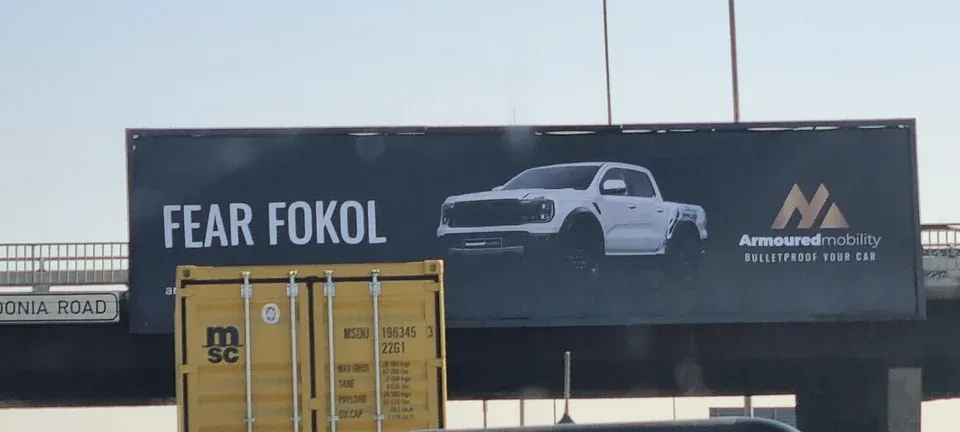Fear Fokol billboard deemed a big no-no
Is this the beginning of a new wave in 'boundary-pushing' South African advertising?
In South Africa there is a growing market for armoured vehicles.
A Sandton-based company that provides these specialised vehicles recently put up a billboard on a busy highway with the line 'Fear Fokol' prominent on the hoarding.
Their intention was to use 'an innovative approach' to capture attention from passing motorists, but the South African Advertising Regulatory Board disagreed with the use of the word 'fokol' in the ad and asked the company responsible, Armoured Mobility, to remove the offending ad.

Mainstream use of the word 'fokol' has come into the spotlight recently with the acceptability of the term being debated at length in parliament.
In this case there is concern that the copy is not appropriate for children to see.
According to the ARB:
Without having to research the etymology of the word “FOKOL”, it can reasonably be assumed that people are aware that this is the Afrikaans version of “Fuck-All”, just as “Fok” is the Afrikaans version of “Fuck”.
It can also reasonably be assumed that, just as English-speaking parents are unlikely to encourage their young children to use words like “Fuck-All” or “Fuck”, Afrikaans parents are unlikely to encourage their children to use words like “Fokol” or “Fok”.
In essence, it is considered a vulgar word, generally regarded as unacceptable for children to use, or be exposed to indiscriminately.
For this reason the complaint was upheld.
Culturally, South Africa is a unique place. Here a word that is considered offensive from the perceptive of one language group, can be at the same time, considered acceptable by a different language group.
Historically these boundaries haven't as yet been rigorously tested, but perhaps as we get more comfortable with each other - there is cause for an increased level of exploration in this regard.
It's fair that this particular ad got shelved - the argument for doing so is sound, but that doesn't mean that this is the end of the line for this kind of 'crossing over' of language norms in South African advertising.
We suspect that this may just be the beginning of of further experiments in commercial 'boundary pushing'.

